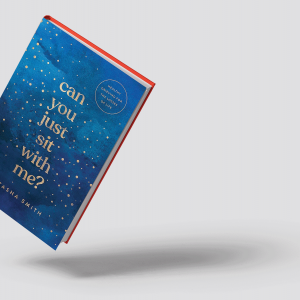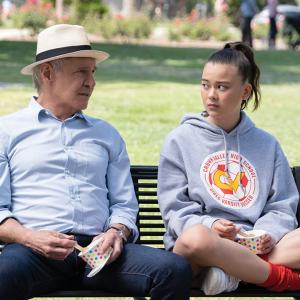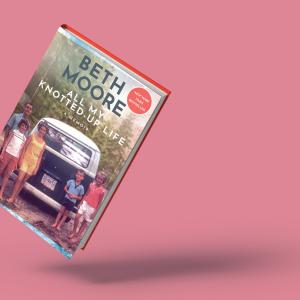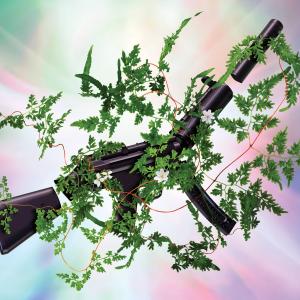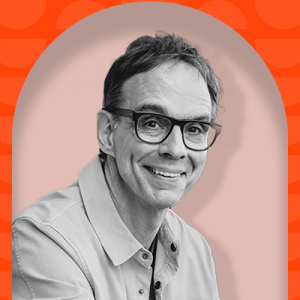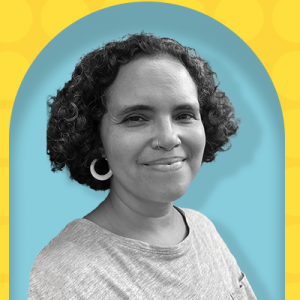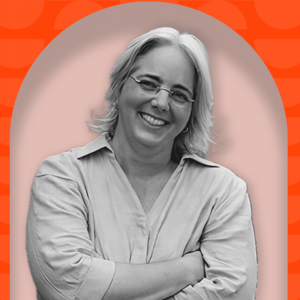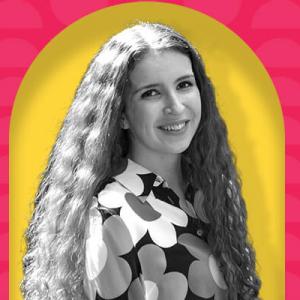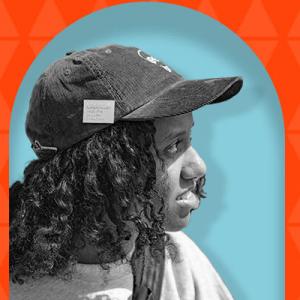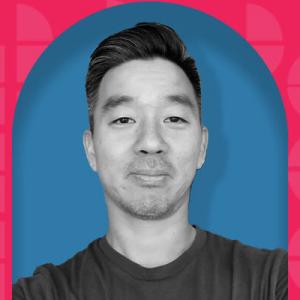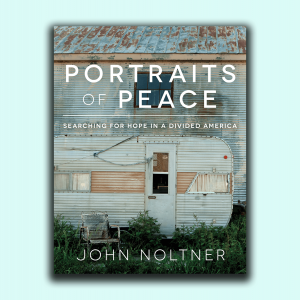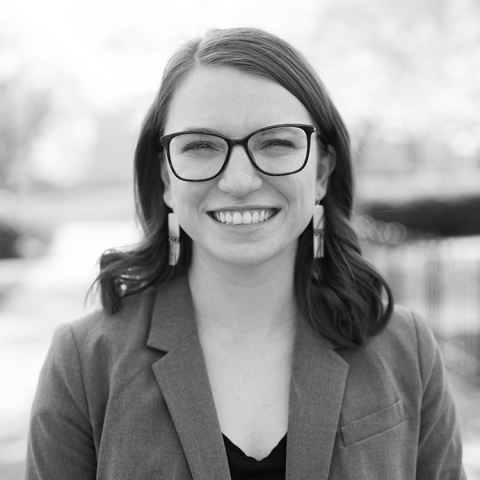
Liz Bierly is a former assistant editor at Sojourners magazine, a role she took on after previously serving as an editorial fellow.
An Ithaca College alum, Liz studied journalism, counseling, and politics while participating in various media and ministry roles throughout her studies. Her writing and reflections have appeared in The Ithacan, Lancaster Online, HSDTV7, The Trek, and Sojourners.
Liz has a particular interest in encouraging harm-reductive practices in media coverage, particularly in conversations surrounding the criminal legal system, gun violence and public safety, and mental health. She has previously conducted research regarding the social implications of dominant media framing of the perpetrators of mass shootings. Liz has also earned a certificate of completion at the Poynter Institute’s “A Journalist’s Guide to Covering Jails” training.
Born and raised in Lancaster, Penn., Liz developed a deep appreciation for rolling hills, farm fields, and the outdoors. She completed a thru hike of the Long Trail in Vermont during July 2021 and looks forward to planning (many) more adventures in the future. Outside of the office, you can find her jamming to Spotify, color-coding her planner, running, rock climbing, and reading anything she can get her hands on. You can view her professional work at lizbierly.wixsite.com/site or follow her on Twitter @lizbierly
Posts By This Author
Words for People Hurting Too Much To Find Their Own
SOMETIMES, YOU HEAR someone’s story and think: You’ve been through it.
Miscarriage. The loss of siblings. The death of a parent. The murder of a nephew. Loss of identity and career direction. Racial trauma. Natasha Smith has a deeper understanding than many of what it takes to walk through seasons when, as the hymn “It Is Well With My Soul” says, “sorrows like sea billows roll.” And her book Can You Just Sit with Me? Healthy Grieving for the Losses of Life offers hope, comfort, and compassion for the people trying to hold onto an “it is well” faith.
I remember saying to someone when I was deep in the trenches of my own grief, “You mean I have to feel like this forever?” — a question Smith herself has asked. Yet each chapter of her book reminds readers that by sitting with Jesus and with others while walking through loss, the pain lessens enough to be livable. In her book, you will find promises, but not empty ones, about life after loss. It makes a difference knowing that Smith has walked through the valley of the shadow of death and — though she’d be the first to tell you she’s still passing through it — has glimpsed the other side.
Smith’s deep faith doesn’t prevent her from recommending that Christians use all healing resources at their disposal, reminding readers, “It is okay to need both Jesus and a therapist.” What sets her book apart from others, however, is that Smith, an African American woman, also speaks to the collective grief of the pandemic and the compounded trauma that Black Americans experienced — and continue to live through — in the wake of the racial reckoning of 2020.
‘Ted Lasso’ Reached Its Finale. Fans Should Watch This Next.
HOW WOULD YOUR life change if you stopped filtering your thoughts and instead shared what was really on your mind? This is the question at the heart of Apple TV+’s Shrinking, a tear-jerker of a comedy that follows therapist Jimmy (Jason Segel) and his teen daughter Alice (Lukita Maxwell), who is grappling with the loss of her mom and the emotional withdrawal of her grieving dad. In the months following his wife’s unexpected death, Jimmy turns to women and substance use to numb his pain. As Jimmy checks out of actively parenting, other people in Alice’s community step in — including the neighbor Liz (Christa Miller), who makes dinner for Alice and cheers her on at the soccer games her dad has forgotten. After a particularly flagrant parenting fail on Jimmy’s part, Liz confronts him, saying, “I have to ask: Is this you forever?” Jimmy’s response is relatable to many who have lost themselves in the wake of losing a loved one: “I don’t know.”
Yet with assistance from Liz, candid conversations with co-therapist Gaby (Jessica Williams), and unwavering friendship from Brian (Michael Urie), viewers watch Jimmy return to himself. And in the process, he breaches all guidelines about boundaries between patients and clients.
Untying Threads of Grief in ‘All My Knotted-Up Life’
“GRIEF TAKES SO much energy. I can feel it even in my fingers.”
These are the words that drew me to Christian author and speaker Beth Moore’s memoir, All My Knotted-Up Life. She posted the sentences as two separate tweets in the wake of her brother’s unexpected death, less than three weeks before her memoir’s release.
Through her Living Proof Ministries, Moore is one of the most prominent white evangelical women in the U.S. I braced myself as I entered the book, but she delivers stories of resilience with all the charm, sweetness, and humor one would expect from a memoirist with roots in Arkadelphia, Arkansas.
Why the Gun Lobby Loves Christians
THE LEADING CAUSE of death for children in 2020 wasn’t COVID-19. It wasn’t cancer. And it wasn’t car crashes. Rather, more than 4,300 of our children in the United States died by firearms — the first time in at least 40 years that guns have accounted for more deaths than motor vehicle incidents.
The numbers are stark: More than 110 people in the U.S. are killed every day with guns, while more than 200 others are shot and wounded. “Gun violence in any form — any form — leaves a mark on the lives of those who are personally impacted,” Giselle Morch, a deacon and mother whose son, Jaycee, was shot and killed in their home, told Sojourners. “So many of us will never be the same.”
On July 19, 2017, Morch took her grandson to Vacation Bible School, where she played the role of the Lord in a skit from Judges about Gideon and the Midianites. “One of the lines was ‘For God and for Gideon,’” Morch said. “And when I got home, that’s when the battle was: That’s when my own son was murdered — my son who said, ‘I may not change the world, but I want to inspire many.’”
One thing about the senseless loss of Jaycee has always been clear to Morch: “This could have been prevented.” Shortly after he was killed, Morch began volunteering with Moms Demand Action for Gun Sense in America to advocate for cultural and legislative change. She has since joined Everytown for Gun Safety’s Survivor Fellowship Program to connect with others who have been impacted by gun violence. “There are others in this movement, because it’s not a moment,” Morch said. “A moment was when my son died; a movement is the call to action to make the change so that nobody else does.”
Beyond the Story with David E. Kresta
IN THE NOVEMBER 2022 issue of Sojourners, author and researcher David E. Kresta suggests that community economic development is one significant way that churches can bring hope and healing to their neighborhoods. Editorial associate Liz Bierly spoke with Kresta about how he connects his faith and his vocation, his book Jesus on Main Street and his Ph.D. research on the connection between churches and gentrification, and some steps faith communities can take to truly love their neighbors. You can read his article, “Your Church's Soup Kitchen Doesn't Create Social Change,” here.
This interview has been edited for length and clarity.
Liz Bierly, Sojourners: You went from a degree in computer engineering to having experience in marketing and management to a Ph.D. in Urban Studies that you leveraged to explore the role of churches in neighborhood change. Can you tell me more about that career trajectory?
David E. Kresta: I started out, as you noted, in the high-tech field as a software developer; I had this parallel journey, I guess. I had my vocation, and then I had my Christianity — and when I was raised, those things were separate. I grew up in this space where I was essentially living my “American dream life” — following and pursuing high tech, making money, having a job, and having a family — and then [having] my spiritual journey, and they weren’t connected. Over time, I think God sought me out and said, “Hey, these are things that need to be connected.”
And through a long process, I became aware of things that I had been blissfully ignorant of. I grew up in Detroit, which was hyper-segregated; I was very much isolated from poverty, and I didn’t even know anything about gentrification as I was growing. I think that captures a lot of what people live today: Things that are out of sight, they really have no connection to, and they don’t even know about them other than what they maybe hear on the news. To make a long story short, I started doing some volunteer work with churches to serve their communities and really became more aware of the things that are going on in the world around us, and the brokenness at the systems level.
God really challenged me through this process of discernment to dive in and, as best as we can, try to understand what is going on in the world around us. That’s why I decided to pursue that Ph.D.: Because I felt like the church really had something to say in this space, and we need to be better equipped to speak into and address the issues that are going on around us.
Beyond the Story with Josina Guess
IN THE NOVEMBER 2022 issue of Sojourners, culture columnist Josina Guess explores the legacy of Denmark Vesey, Mother Emanuel AME Church, and the stories that resist removal. Guess spoke with editorial associate Liz Bierly about the connection between art and practice, the mentor that impacted her life and writing, and the full-circle moment of being back in Sojourners’ pages. You can read her November column, “Remembrance as Resistance,” here.
This interview has been edited for length and clarity.
Liz Bierly, Sojourners: You previously pursued a BA in fine and studio arts, and now you are working toward an MFA in narrative nonfiction. What led you to pursue these studies, and what does it look like for you to pursue the intersection of those topics?
Josina Guess: In college, I was just captivated by ceramics and by the process of having something that got my hands dirty and centered me every day in the swirl of college life. I think that’s why I majored in art — I could have studio time — but I wasn’t necessarily pursuing a career in the arts. I had been recognizing that words felt like a medium that I could carry with me anywhere I went, and I didn’t need to have a studio or a kiln.
I ended up not really pursuing ceramics, but I think writing was sort of a continuation of that sort of art as practice. When I’m trying to think about what my days are like [now] — like today I moved some goats, picked some cucumbers, and made some kimchi — I think it’s this combination of these real-life practices of gardening and farming and parenting, and then just engaging in and paying attention to what’s going on in the world and writing about it. [I’m] trying to find a balance in my own life of joy and centering, and then also seeing how to respond to the really broken and wounded parts of myself and of the world, and hope that healing comes in all of those practices.
Beyond the Story with Rose Berger
IN THE SEPTEMBER/OCTOBER issue of Sojourners, senior editor Rose Berger reflects on her experience taking part in an interfaith peace delegation to Ukraine in May 2022. Editorial assistant Liz Bierly spoke with Berger, who joined Sojourners in 1985, about her Catholic faith, her commitment to nonviolence and peace efforts, and “how to live the good life.” You can read her feature, ‘Why Our Faith Delegation Went to Ukraine,’ here.
This interview has been edited for length and clarity.
Liz Bierly, Sojourners: You began working at Sojourners by joining the fellowship program soon after college. What led you to the organization, and why have you stayed at the magazine?
Rose Berger: My faith and activism in college led me to Sojourners when I was 22. The fellowship program was a very strong faith formation process for me in radical Christianity and introduced me to a social movement and history that I’d only read about. When I applied to Sojourners in 1985, I wanted to work on the magazine team, but I had so much experience in community organizing that they assigned me to work with the advocacy and organizing teams. As soon as a magazine position came open, I jumped on it—and I’ve never looked back.
I love working on the magazine; magazines are the most curated pieces of art that come into peoples’ houses. Sojourners is a way for the tradition of radical Christianity in the U.S. to be carried on.
Beyond the Story with Sarah James
IN THE SEPTEMBER/OCTOBER issue of Sojourners, culture columnist Sarah James explores how visio divina (“divine seeing”) allows us to seek God’s wisdom with soft hearts. Editorial assistant Liz Bierly spoke with James about how her identity influences her writing and the place that has shaped her faith. You can read her column, “Seeking God’s Wisdom Through ‘Visio Divina’,” here.
This interview has been edited for length and clarity.
Liz Bierly, Sojourners: Writing and education have been two of your largest commitments in your career. What drew you toward those spaces, and what do you bring to your pages while writing?
Sarah James: I come from a long line of teachers. In my view, education is a rich space for formation, discovery, critical thinking, and meaning-making. As a student at Middlebury College, I majored in English and American Literatures, which nurtured my love for narrative, critical theory, and finding connections between the humanities and community work. In the fall, I’m planning to begin doctoral work in peace education and the arts to explore the relationships between identity formation, public memory, and peacebuilding.
I grew up in a homogenous pocket of the Midwest in a bicultural, biracial family. My identity has been profoundly influenced by dwelling in the “in-between,” which is a gift. My positionality and my educational experiences have taught me how to refine my quality of attention, how to know and not know, and how to ask better questions. I hope that I—being biracial, a person of faith, a feminist, a writer, and an editor—bring a perspective steeped in curiosity and humility to the page.
‘God Has a Plan’ and Other Bad Things To Say to a Grieving Friend
Whatever the cause of the loss, the result is uniquely painful but universally true: We’re left to pick up the pieces amid waves of grief, while those around us struggle to know what to say — a struggle that dates back to biblical times.
Beyond the Story with Céire Kealty
IN THE AUGUST issue of Sojourners, Ph.D. candidate and writer Céire Kealty highlights the spiritual significance of the desert in the Christian tradition and why the clothing dump in the Atacama Desert should be a concern for ethicists, environmentalists, and theologians alike. Editorial assistant Liz Bierly spoke with Kealty about her research, the ethics of today’s garment industry, and how readers can take action to combat clothing waste. Read Kealty's full feature.
This interview has been edited for length and clarity.
Liz Bierly, Sojourners: From your undergraduate studies to your ongoing Ph.D. candidacy, you’ve concentrated on religious studies and theology. What drew you toward this path?
Céire Kealty: I was raised in the Catholic Church and attended parochial school [starting in] kindergarten, so I have had a long-standing fascination with religion and theology. It was through my childhood education, the materiality of my faith, and my proximity to the natural world that I came to realize the numinosity cradling the world. I was convinced that Holy Mystery permeates all, especially the most mundane parts of our lives.
This may come as a surprise given my childhood and my C.V., but I had no plans to study academic theology. I began college as a business major! I bought and sold vintage and designer clothes as a part-time gig before college, so business school seemed like a wise place to land.
Luckily, I attended a liberal arts college, where I had to complete humanities courses as part of the core curriculum. I remember the first religion class I took: I learned about Catholic social teaching alongside Sr. Helen Prejean’s anti-death penalty work. I couldn’t get enough of the readings and class discussions, so I sought out more and more religion classes. By the end of my sophomore year, I had declared a second major in religious studies.
Throughout college, I maintained these twin interests in business and religion, with special attention given to the garment industry. I knew I couldn’t abandon these interests and go off to an accounting firm. I had seen how my interdisciplinary studies had complexified my interest in clothing, and revealed striking insights about consumption, community, and responsibility. I wanted the space to “play” with these insights and share my findings with others– and graduate school gave me that space.
Beyond the Story with Jim Rice
IN THE AUGUST issue of Sojourners, editor Jim Rice raises questions about the ethics of military chaplaincy in his column, “Grain of Salt.” Editorial assistant Liz Bierly spoke with Rice, who joined Sojourners in 1982, about how he became editor of Sojourners, his commitment to environmental activism and peacemaking, and how he lives out the values of the magazine. Read his most recent column.
This interview has been edited for length and clarity.
Liz Bierly, Sojourners: How did you first come to be connected to Sojourners?
Jim Rice: I came to Sojourners through voluntary service. I was in the Jesuit Volunteer Corps, working at Georgetown University on peace issues. I started working in collaboration with the peace ministry folks at Sojourners specifically around the nuclear weapons freeze campaign. Long story short, I got hired and came to work on the peace ministry here at Sojourners, and I’ve been here ever since.
I became editor of the magazine in summer 2006. One thing I find most compelling is that we may do the same round of things issue after issue, but the content of what we deal with is always different. There’s always new material to learn, issues to learn more about, amazing stories about what people are doing to make a difference in the world, and it’s very inspiring to be part of that month after month.
Our Right to Organize Is in Danger
FROM THE BOSTON Tea Party to the Montgomery bus boycott, expressing patriotic dissent by withdrawing support from goods, services, people, or structures has long been an integral part of our American democracy.
So, when Alan Leveritt (publisher of the Arkansas Times newspaper), Mikkel Jordahl (an Arizona attorney who provides legal services to incarcerated people), and Bahia Amawi (a Texas public school speech pathologist) were asked in separate incidents to certify that they would not “engage in boycotts of Israel” as a condition of doing business with or being employed by their states, they were troubled. Leveritt, Jordahl, and Amawi each decided to defend their First Amendment rights and push back on legislative efforts that have the potential to outlaw peaceful political boycotts related to a variety of issues.
Their stories are central to Just Vision’s new documentary, Boycott, which exposes the wave of anti-boycott legislation and executive actions in 33 states since 2015. These laws require Americans to give up their right to support the Boycott, Divestment, Sanctions (BDS) movement, a campaign formally begun in 2005 in Palestinian civil society to urge the international community to leverage economic influence to encourage the Israeli government to address its human rights record. (Some Israeli officials and others claim that BDS efforts challenge Israel’s right to exist and are inherently antisemitic.)
Beyond the Art with Blane Asrat
For the July issue of Sojourners, freelance artist Blane Asrat illustrated portrait painter Kehinde Wiley. She spoke with editorial assistant Liz Bierly about why she’s a portrait painter, the physical connection to her work, and what she hopes viewers will take away from her art. You can find her illustration of Wiley in the July issue and see more of her work at artblane.work.
This interview has been edited for length and clarity.
Liz Bierly, Sojourners: On your website, you say that you “seek to explore the sensitivity of everyday human experiences while making the world a more empathetic place.” What does that look like?
Blane Asrat: I am primarily a portrait painter because I am interested in human emotions. Growing up, I was always told that I was too sensitive and too reactionary. All teenagers kind of go through that phase of being extra emotional, but I feel like for me, it started way too early and never really ended. I’ve always just been a sensitive person, and I’ve been in these situations where I am in conversations or social settings where no one really knows how to deal with that. It’s uncomfortable and it’s awkward because we don’t know how to be emotional with each other.
And so, my artwork is all pretty internally motivated. It’s usually about what I’m feeling, or how my friends are feeling, or what I’m feeling other people are feeling. My goal with my artwork is really just to answer the question: What would this feeling look like if I could see it? And I have this hope that if more people could have time to pause and really ask themselves those questions, it will just lead to a world where people are more comfortable with their emotions.
Beyond the Story with Peter Chin
In the July issue of Sojourners, Peter Chin of Rainier Avenue Church in Seattle discusses why so many pastors are stepping away from ministry in the wake of the pandemic, and how this phenomenon could fundamentally change the landscape of the American Christian faith. Editorial assistant Liz Bierly spoke with Chin about the current pressures on pastors, God’s loving-kindness, and how we courageously move forward. Read Chin’s full feature, “Here Is the Church, Here Is the Steeple – Where Is the Pastor?” in the July issue.
This interview has been edited for length and clarity.
Liz Bierly, Sojourners: What drew you to pastoral ministry?
Peter Chin: I think pastoral ministry was definitely a call out of the blue. I had been preparing for medical school all throughout my adolescence and was taking the MCAT and doing all the pre-med requirements, and then just felt a very stark and sudden calling to ministry, which was very unexpected for me and for my family. But it did feel like a calling, and it remains that way. I don’t often feel fitted for it, to be honest, but I do feel like it’s a calling that I’m continuing to be faithful to.
Beyond the Story With Iris M. Crawford
In the June issue of Sojourners, climate writer and journalist Iris M. Crawford identifies how some Indigenous nations are finding hope and solidarity through a collaborative solar energy initiative. She spoke with editorial assistant Liz Bierly about Afrofuturism, movement journalism, and what energizes her own work. Read Crawford's story, "Harnessing the Sun to Become Sovereign Again."
This interview has been edited for length and clarity.
Liz Bierly, Sojourners: You got your start in science journalism because of your experience in grassroots climate justice organizing. How do you integrate that [experience] into your writing now?
Iris Crawford: I grew up in New York City, so I experienced Hurricane Sandy back in 2012. When I was an undergraduate student, I got the opportunity to write about climate justice and how it particularly affects Black and brown communities. Pulling from those experiences, being first-generation Guyanese, remembering Hurricane Sandy, and then writing that first story back in my undergrad years solidified that this is something that I kind of enjoy. That led me to my first organizing roles with the NAACP, and then I really got to understand how climate inequality and working toward racial and social justice all sort of intertwine. Through that, I got to learn and meet and build relationships with really great activists and people doing a lot of incredible things that are working to make our world better and more equitable, and I wanted to be able to tell those stories.
Beyond the Story With Bekah McNeel
In the June issue of Sojourners, freelance journalist Bekah McNeel reports on the ongoing battle over sex education in schools—and the role of Christians on both sides of the skirmish. While some Christians are leading the culture-war fight, McNeel highlights that there are others who are working for a comprehensive approach that goes beyond silence or shame. Editorial assistant Liz Bierly spoke with McNeel about her reporting process, her upcoming book, and what is keeping her hopeful. Read McNeel's story, “The Battle Over Sex Ed."
This interview has been edited for length and clarity.
Liz Bierly, Sojourners: I imagine there are times, especially with the topics you are covering (equity, race, abortion, education) where you talk to someone and all of a sudden, you’re like, “Wow, this story is not what I thought it was.”
Bekah McNeel: So often. And those are my favorite stories. I love working with editors who I can call and be like, “Hey, this is bigger than we thought,” or “There’s a nuance here that we really want to highlight.” Especially as you earn trust with a source, a lot of times in the first conversation or the beginning of a conversation, they’re rightfully suspicious of you. If they tell you a piece of their truth and you’re like, “Anyway but back to what I want to talk about,” they’re going to be like, "Alright, you’re not interested.”
But if you have an open hand with the story, people will take you—sources will take you—to a place that the narrative and the discourse hasn’t gone yet. And that’s what I love. I’m a professional journalist—if the editor says stick to the plan, we stick to the plan. But I think the better stories are when we don’t.
‘When Things Get Difficult, Will You Stay at the Table?’
MORE THAN A decade ago, photographer John Noltner began crisscrossing the United States to conduct interviews focused on this question: What does peace mean to you? The result was a multiyear, multimedia arts project called “A Peace of My Mind.”
Four exhibits, three books, and tens of thousands of miles later, the pursuit of peace has only become more important as the country trembles on ominous fault lines: Noltner put together his most recent book of interviews and photographs, Portraits of Peace: Searching for Hope in a Divided America, several months after the 2017 Charlottesville neo-Nazi riot, made final edits amid the emergence of the COVID-19 pandemic and fallout from the murder of George Floyd, and sent the book to the publisher just weeks before the 2020 presidential election.
Portraits of Peace weaves together unique narratives while identifying ways readers can begin dismantling biases that lead to division. As Noltner writes in a benediction of sorts, “May these stories be a beacon and a compass to guide our journey” toward “encountering difference, navigating conflict, and finding a better path forward.”
